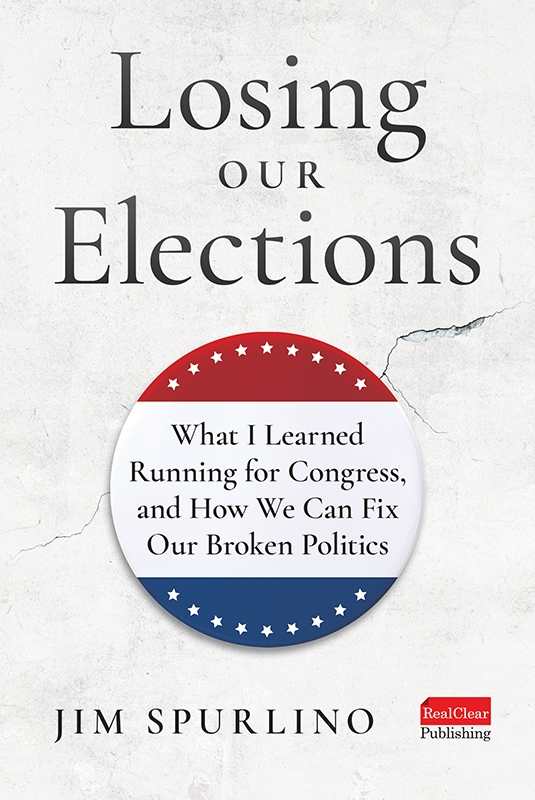Losing Our Elections
What I Learned Running for Congress, and How We Can Fix Our Broken Politics
Losing Our Elections is a memoir that pulls back the curtain on modern American politics.
Jim Spurlino relates the lessons he learned when he ran for the US House of Representatives in his political memoir Losing Our Elections.
When Republican representative John Boehner of Ohio resigned in 2015, businessman Jim Spurlino kept hoping for someone other than a run-of-the-mill career politician to replace him. When no one emerged, Spurlino made a life-changing decision: despite having no political experience beyond making donations, he would run for office himself. Though he didn’t make it past the primary, the experience gave him fresh ideas about what’s great about American democracy, what needs work, and how to improve the system to everyone’s benefit.
In an earnest, affable tone, Spurlino describes his campaign from start to finish, from gathering enough signatures to get on the ballot to arranging an ill-fated robocall campaign just before Election Day. In the process, he exposes how difficult and unpalatable politics can be. He is honest about how his own inexperience led him to make questionable decisions, as when he allowed others in his campaign to put words in his mouth that didn’t reflect his views but that might translate into votes. These admissions make his later complaints about others lacking integrity or not “having a spine and standing up for what’s right” sound somewhat ironic, though. Further, the book’s discussions of immigration contain outdated language and factual inaccuracies.
In the final chapters, Spurlino relates how the election changed his life and what it taught him about American politics. The chapter where he reveals the exorbitant amount of money, especially money from outsiders, required to win an election is quite eye-opening. And the book’s afterword includes multiple suggestions for minimizing the influence of money and gerrymandering on elections, as well as for increasing voter turnout. Some of its ideas, including increasing voter participation through technology and ranked-choice voting, are backed with clear support, while others are without sufficient evidence, such as the assertion that states cannot draw districts based on race, which neglects to account for arguments that many states have already found ways to do so in defiance of the law. Further, the book asserts that the Supreme Court maintains independence without interrogating recent events that call such independence into question.
Expressing understandable mixed feelings about Spurlino’s loss, the book ends on a relatable note. Spurlino notes that while he had a genuine desire to win, he was also glad to return to his normal life and put the campaign behind him. Even after the election was over, he continued to play a larger role in politics than he did before and to use his firsthand knowledge to educate others. He relays all of his experiences and his takeaways in clear terms and, for the most part, with good humor. This makes the book an illuminating behind-the-scenes look at how inaccessible politics and politicians have become—and how to fix such issues.
Losing Our Elections is a memoir that pulls back the curtain on modern American politics.
Reviewed by
Eileen Gonzalez
Disclosure: This article is not an endorsement, but a review. The publisher of this book provided free copies of the book and paid a small fee to have their book reviewed by a professional reviewer. Foreword Reviews and Clarion Reviews make no guarantee that the publisher will receive a positive review. Foreword Magazine, Inc. is disclosing this in accordance with the Federal Trade Commission’s 16 CFR, Part 255.

